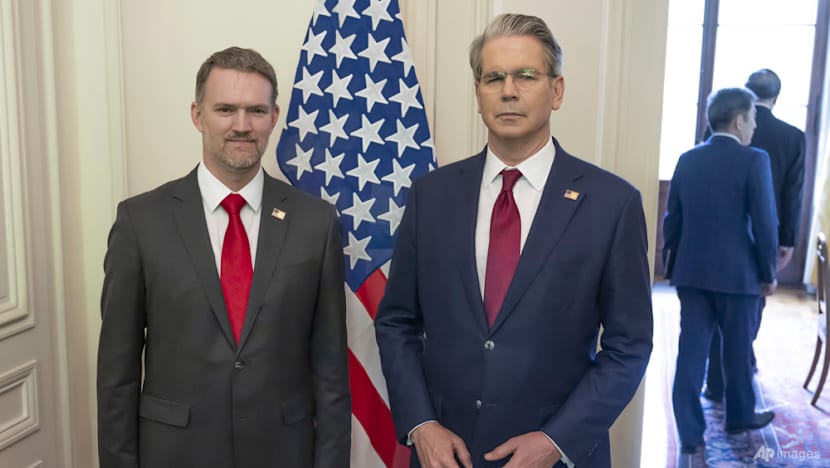Switzerland wins US tariff cut to 15%, pledges US$200b in investments

ZURICH: The United States and Switzerland announced a framework trade deal on Friday (Nov 14) that will cut US tariffs on Swiss goods to 15 per cent from 39 per cent, while Swiss companies pledged US$200 billion (S$272 billion) in investment in the US by end-2028.
The agreement, which also includes Liechtenstein, is expected to be finalised by the first quarter of 2026, the White House said.
US Trade Representative Jamieson Greer said the deal dismantles “longstanding trade barriers” and will open new markets for American exporters. He welcomed the “massive Swiss investment” planned across pharmaceuticals, aerospace, medical devices and gold manufacturing, saying it would help reduce US deficits in key sectors.
At least US$67 billion of the pledged investment will arrive in 2026, according to the White House. The total includes earlier commitments such as US$50 billion from Roche and US$23 billion from Novartis, alongside investments from ABB and railway maker Stadler.
PHARMA TARIFFS CAPPED AT 15%
Swiss Economy Minister Guy Parmelin said the lower tariff level puts Switzerland “on an equal footing with the European Union”, noting that about 40 per cent of Swiss exports are affected.
“The reduction from 39 per cent to 15 per cent is significant,” he said, while acknowledging that Switzerland would prefer the investments to stay at home.
The 15 per cent ceiling will also apply to future Section 232 national-security tariffs, including those expected in sectors such as semiconductors. Without the cap, those duties could have risen as high as 100 per cent on patent-protected drugs under President Donald Trump’s tariff regime.
Swiss officials said the new rate could be activated within “days or weeks” once US customs systems are updated.
SWISS MARKET OPENINGS FOR US PRODUCTS
Under the framework, Switzerland will cut duties on selected US industrial, agricultural, fish and seafood products it considers non-sensitive.
It will also grant duty-free quotas to the US for 500 tonnes of beef, 1,000 tonnes of bison and 1,500 tonnes of poultry. Washington said Switzerland will also remove tariffs on certain nuts, fruits, seafood and chemicals.
In what the White House described as a significant gesture, Switzerland will recognise US motor-vehicle safety standards, a step US officials hope will ease long-standing barriers to American cars in Europe.
SWISS INDUSTRY WELCOMES LEVEL PLAYING FIELD
Industrial groups hailed the announcement, saying Swiss firms will now compete on the same terms as EU exporters, who secured a 15 per cent tariff level earlier.
“For the industrial sector, this is good news,” said Nicola Tettamanti, president of Swissmechanic. “For the first time, we have the same conditions in the US market as European competitors.”
Swiss machinery, precision instruments, watchmaking and food sectors are expected to benefit the most, said Hans Gersbach of the KOF Swiss Economic Institute. KOF forecasts that Switzerland’s 2026 economic growth could exceed 1 per cent once the tariff cut takes effect.
Swissmem, the technology industry association, reported on Friday that exports to the US fell 14 per cent in the three months through September, while machine-tool shipments plunged 43 per cent under Trump’s earlier 39 per cent tariff.
Economist Nadia Gharbi of Pictet said the new agreement removes “the main downside risks” facing Switzerland’s economy, noting that the country had suffered a competitiveness shock because EU exporters faced tariffs of only about 15 per cent.
Switzerland had a US$38.3 billion goods trade surplus with the US in 2024, which rose to US$55.7 billion in the first seven months of 2025 amid front-loading by US importers ahead of Trump’s tariff hikes.















